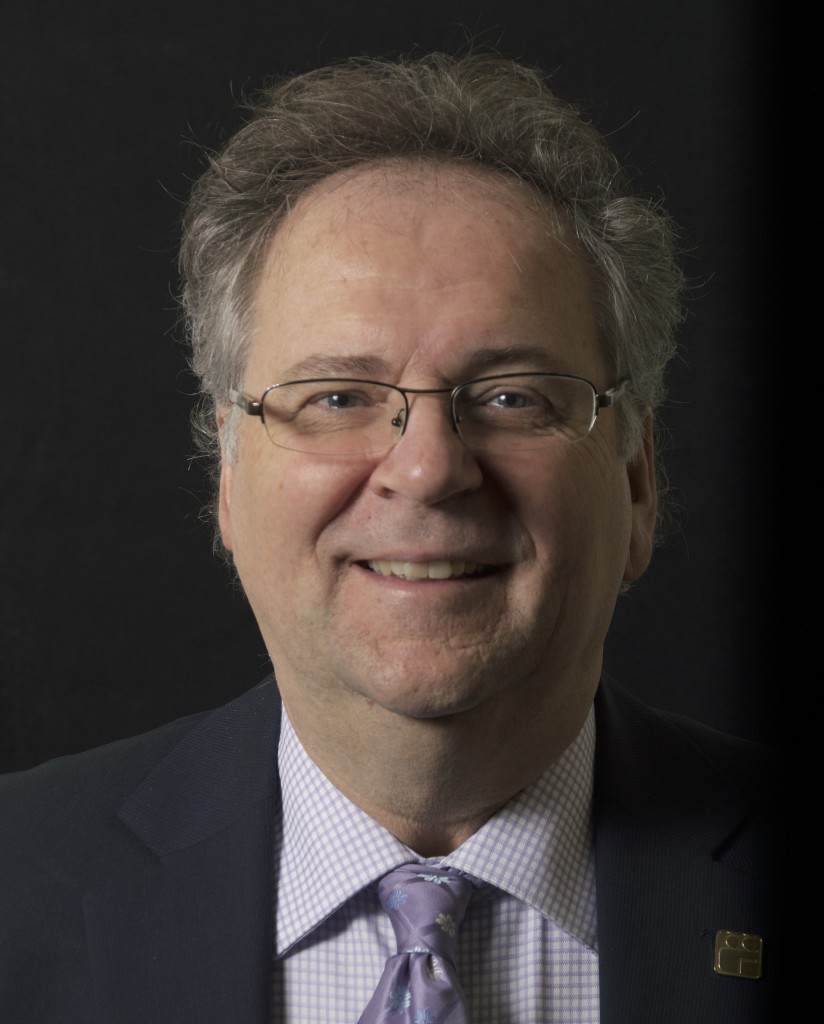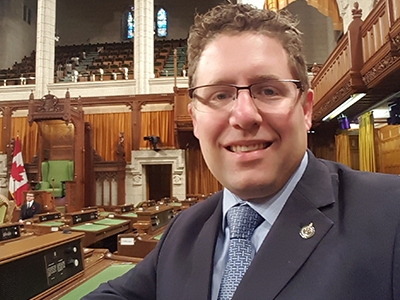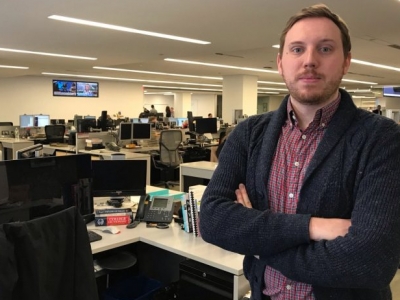This profile was part of the Faculty of Public Affairs’ 75 for the 75th series, which highlighted 75 notable alumni in FPA in honour of Carleton University’s 75th anniversary. These stories were published in 2016 and 2017.
CEO, Citizen Advocacy of Ottawa
Master of Social Work (’91)

When Brian Tardif saw a job opening at Citizen Advocacy Ottawa 31 years ago, he was immediately excited about the prospect. What he didn’t expect was that it would become his life’s work.
“I never realized I would spend my life here, but I’ve seen so many wonderful things happen for people as a result of it,” says Mr. Tardif of the organization, which works with and for people with disabilities. “This fits my own values and principles regarding the importance of relationships in people’s lives and that’s what holds my passion.”
Citizen Advocacy creates one-on-one relationships between volunteer advocates for people with disabilities “to ensure no one is left alone.” It includes facilitation and person-directed planning to help people construct a blueprint for their future. The group also creates personal support networks known as “lifetime networks.”
“I’ve had the unique advantage to really see the impact this work is having over the long term,” says Mr. Tardif. “I’ve seen people who came in 15 or 20 years ago and established a relationship with a volunteer advocate that continues today. I’ve seen their evolution and personal growth over that time. I’ve witnessed the positive impact of voluntary and freely given friendships on individual health and well-being.”
Many of these stories appear on the Citizen Advocacy website. There are the Rorwick brothers who have Down’s Syndrome, work in part-time jobs and compete in the Special Olympics. Or an eight-year-old named Kyram who is funny, intelligent and communicates through assistive devices. The organization has set up a personal support network for Kyram and his dad, who’s a single parent.
“There are so many stories like that,” says Mr. Tardif. “I think of Kathy, who is blind and has cerebral palsy. She was placed in a huge institution when she was 8-years-old and didn’t go to school, but she knew she didn’t belong there. For the past 25 years, she has lived in an apartment with support and lots of friends. I’ve learned a lot from her.”
Mr. Tardif grew up in Halifax during a time of large psychiatric institutions, racial segregation and poverty.
“At a very young age, I recognized discrimination and the impact of poverty,” says Mr. Tardif, who remembers the destruction of Africville. “I could see something wasn’t right and I wanted to do something about that. I thought I could make a difference as a social worker.”
After six years working for Big Brothers Big Sisters in Halifax, Mr. Tardif moved to Ottawa to take a social work position at the Ottawa Distress Centre. Jeanne Love, an iconic social worker, hired him and during the short time they worked together, she had a tremendous impact on him. When she retired 9 months later, he was appointed as her successor and realized he needed a broader understanding of social policy and nonprofit administration. That drew him to Carleton.
“The School taught me about the evolution of social policy, how it gets formulated, how it evolves and strategies for impacting its evolution,” says Mr. Tardif, who also leads workshops on these topics with non-profit organizations around the world.
Throughout his career, he says he’s been motivated by the rights of people to reach their full potential. But while he helps clients build a stronger support network, he says they also help him.
“One thing that keeps me here is that I’m continually learning. When I arrived, I didn’t understand the segregation and exclusion that people with disabilities experience,” he says. “I didn’t recognize how their potential had been crushed by social policy and systems. The people who have taught me are those we are helping to support and their families. It’s been a remarkable journey.”
He acknowledges the field is not for everyone: “if you don’t have the passion, it’s not the work for you.” But for those students who are passionate about helping others, Mr. Tardif says the career is incredibly rewarding.
Friday, December 16, 2016 in #FPA75, Career Paths, School of Social Work
Share: Twitter, Facebook



